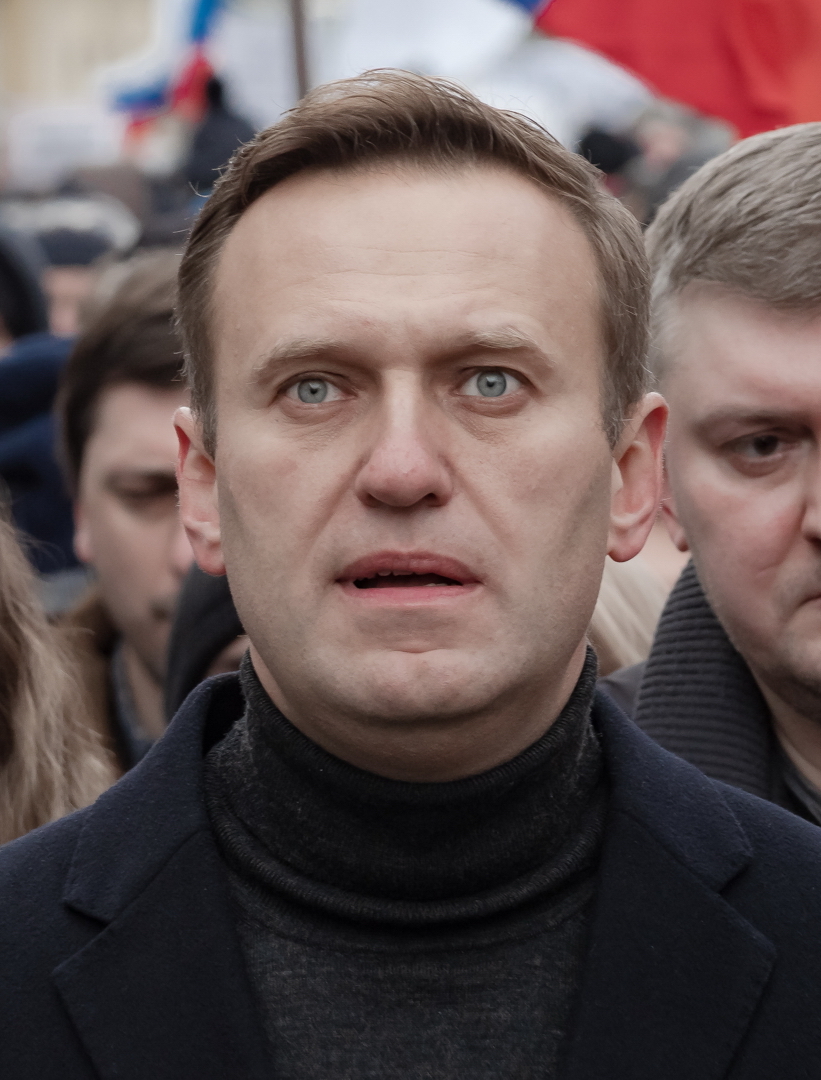Yale experts criticize Kremlin for extending prison term of former Yale World Fellow Alexey Navalny
2010 World Fellow and Russian opposition leader Alexey Navalny was sentenced to nine more years in prison based on likely trumped-up embezzlement and contempt of court charges.

Wikimedia Commons
Yale faculty and affiliates condemned Russian President Vladimir Putin as Alexey Navalny, a 2010 Yale World Fellow, was recently sentenced to nine more years in a high-security prison, and has been charged a fine of 1.2 million roubles, or $11,500 U.S. dollars, following likely manufactured accusations of embezzlement and contempt of court.
An outspoken critic of Putin and a leader of Russian opposition, Navalny founded the Anti-Corruption Foundation — a non-profit organization that investigates corruption among Russian state corporations and senior officials — in 2011. Margarita Kotova, the judge presiding over Navalny’s case, convicted Navalny of embezzling 2.7 million rubles from donations. In addition to fraud, Kotova also convicted Navalny of contempt of court.
The sentence is broadly recognized as an attempt at political intimidation by the Kremlin, particularly in the wake of the war in Ukraine. Navalny is currently serving a two-and-a-half year prison sentence for violating his parole terms, which would end in 2023.
“The recent news of Alexei Navalny’s prison sentence is deeply disturbing,” said Emma Sky, director of Yale’s Maurice R. Greenberg World Fellows Program. “Alexei’s courage and fortitude have inspired millions around the world to speak out against injustice and to stand up for democracy.”
Sky also noted that Navalny had the full support of the World Fellows network, which released a statement condemning an attack on the anti-corruption activist’s life following his poisoning in August 2020. Navalny accused the Russian government of being responsible for his poisoning, and both the E.U. and United Kingdom imposed sanctions on senior Russian officials following the incident.
“We admire Alexey for his courage to speak out against corruption; his persistent campaign for human rights; and his belief in the future of Russia,” the statement said. “We call on the Russian Government to allow and support an independent, transparent and credible investigation to bring the perpetrators of this horrific crime to justice.”
Ted Wittenstein, the executive director of International Security Studies who also served as a 2010 World Fellow, raised questions regarding the intent of Navalny’s imprisonment.
Wittenstein pointed out that Navalny, who was arrested in January 2021 upon his arrival in Russia from Berlin, had returned only to “confront the perpetrators of this heinous crime.”
“The question we should ask ourselves is why Mr. Putin would seek to extend Alexey’s imprisonment now, especially when Alexey already is in jail serving his current sentence,” Wittenstein said. “Clearly the horrific war in Ukraine is a factor, as Russia seeks to eliminate all sources of potential domestic unrest and opposition to the conflict. As the war continues to rage and domestic discontent grows, I fear that Alexey’s life will be in even greater danger.”
Navalny’s aides outside Russia alleged that Kotova had received multiple phone calls from the head of public relations for the Putin administration during the trial, the New York Times reported. Following the trial, Kotova was promoted to a more senior judicial position, according to Russia’s state news agency RIA Novosti.
Navalny will be transferred from the IK-2 prison in Pokrov — where he is serving his current prison term — to a prison “hard diet,” which is further from Moscow and has harsher conditions and more limited visitations.
Navalny urged his supporters to continue the fight against corruption in several posts made on his Twitter account, including one that read, “This toad sitting on an oil pipe will not overthrow itself.”
Two of Navalny’s lawyers, Olga Mikhailova and Vadim Kobzev, were reportedly detained by Russian police after the trial when they tried to speak to journalists, and were later released.
Michael Cappello, who served as director of the World Fellows program during Navalny’s fellowship in 2010, recalled Navalny’s time at Yale. Navalny “represents really what the program was meant to do,” he said.
Not only was Navalny able to express then-University President Richard Levin’s vision for the program – which was to provide global leaders an opportunity to step away from their day-to-day professional work and engage in an academic community – according to Cappello, but he utilized his time at Yale to develop his strategy to target and reduce corruption in the Russian government.
“His time here really helped crystallize his plan for the coming year,” Cappello said.
Cappello noted that Navalny finished the World Fellows program in December 2010 and was arrested one year later for protesting in Moscow, in December 2011.
Humanities professor at Notre Dame University in Lebanon May Akl – who was a 2010 World Fellow alongside Navalny – described her frustration with the “blatant violation of human rights” she believed was being committed against Navalny.
“Alexei has always been a fearless critic of the Putin regime,” Akl said. “He knew the risks and still, he chose to stand for his beliefs no matter what. This is an outrageous and blatant violation to human rights by any standard.”
Akl believed that Navalny would continue to pursue his fight for justice from his cell, and would continue to mobilize as many followers as he could. She also expressed her support for Navalny’s wife Yulia and their children.
Cappello expressed hope that the World Fellows network would make an impact in the situation, and said it was an “excellent” decision for the University to have made Navalny a World Fellow.
“There are World Fellows who are in positions of prominence all over the world who are aware of Alexei’s situation, working behind the scenes and in front of the camera to make a difference,” Cappello told the News.
The first cohort for the Maurice R. Greenberg World Fellows program was assembled in 2002.
Correction, April 6: A previous version of this article incorrectly described Akl’s current position. The article has been updated to reflect this.







